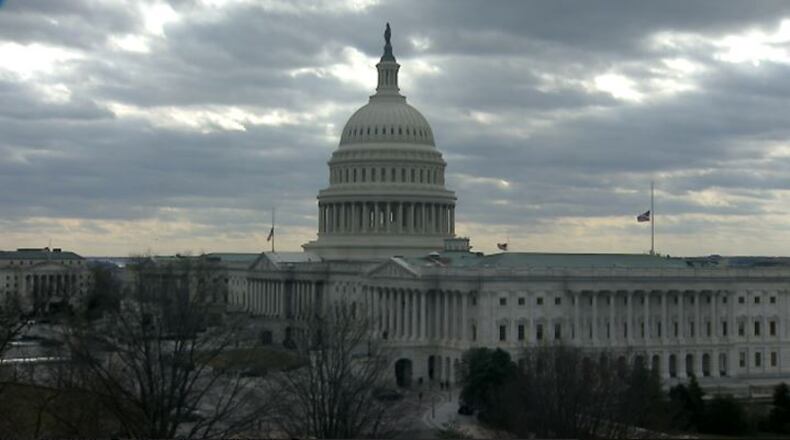Setting up a vote in the full House later this month, the House Judiciary Committee voted along party lines Wednesday evening to approve a bill to extend background checks on gun sales to all private gun transactions, along with a separate measure to give law enforcement more time to deal with background check investigations, as Democrats moved forward on one of their prime agenda items now that their party controls the U.S. House.
"This is common sense legislation to protect the public," said Rep. Hank Johnson (D-GA) said of the bill to extend the requirement for background checks to all gun sales, even private transactions between individuals, whether in person, or over the internet.
"For far too long, Congress has offered moments of silence instead of action in the wake of gun tragedies," Johnson added after the committee's vote. "That era is over."
"A huge volume of guns is sold with no questions asked," said Rep. Jerry Nadler (D-NY), the Chairman of the House Judiciary Committee. "It is time to close this dangerous loophole," as Democrats argued more complete background checks would help stem gun violence.
"Even Justice Scalia in the Heller decision said that Second Amendment rights are not absolute," Nadler added.
The votes came over ten hours after the committee had convened, as GOP lawmakers prolonged by the debate by offering a number of amendments in an extended debate, forcing Democrats to repeatedly vote down a series of Republican proposals.
"This isn't a debate, it's a show," complained Rep. Val Demings (D-FL). "Universal background checks for all gun sales are common sense."
"The NRA is getting their money’s worth today," said Rep. Mary Gay Scanlon (D-PA), as Democrats said Republicans were simply filibustering to slow work on the background checks issue.
Unable to stop the bill, GOP lawmakers charged the Democratic plans would do nothing to rein in gun violence.
"I think it sorts of makes us feel better without addressing the problem," said Rep. Matt Gaetz (R-FL) of the bill backed by most Democrats and a smaller group of Republicans. "It doesn't really seem to be about background checks."
"It's a bill that's unenforceable on its face," said Rep. Mike Johnson (R-LA).
"In the clamor to do something to combat mass violence, you and your colleagues crafted a bill that manages to do nothing," argued Rep. Doug Collins (R-GA).
Under the plan going to the House floor, any private gun transaction would require a background check - Republicans complained that could then subject them to government fees to cover the cost of that check, such as the $125 tab for a background check in Washington, D.C.
"You shouldn't have to come in and pay $250 in Washington to swap guns," said Rep. Louie Gohmert (R-TX), who said the plan amounted to an unconstitutional "poll tax" on the Second Amendment.
A GOP effort to reduce the fee for a background check to zero was defeated, as Democrats countered that the fees are used to run the instant check system.
The committee vote came almost one year to the day of the mass shooting in Parkland, Florida at Marjory Stoneman Douglas High School, which occurred on Valentine's Day in 2018, where 17 students and staff members were killed by a lone gunman.
The committee also approved a second bill to address what has become known as the "Charleston Loophole" - where a gun sale can proceed if a background check is not finished within three days.
Instead, Democrats want to extend that to ten days, to insure that disqualifying evidence in background checks isn't missed simply because of a time deadline.
The provision refers to the mass shooting at a church in Charleston, South Carolina, where the gunman was able to buy a weapon after three days, even though the FBI had not been able to gather all relevant evidence, which would have disqualified Dylan Roof from buying a handgun due to a previous conviction for drug possession.
About the Author
The Latest
Featured



